25 products
- Rosé Wine
- Limniona, Mavroudi, Xinomavro
- Sustainable
- Dry
- Medium Bodied
- 750ml
About the Winery
Oenops
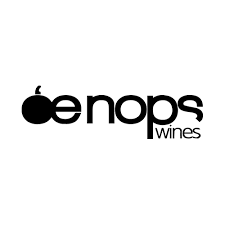
Founded in 2015, Oenops, meaning ‘wine face’, is a pioneering project whose mastermind is the talented winemaker Nikos Karatzas. Following the micro-négociant system, Oenops aims to produce high quality, great value wines. Rather than owning vineyards, the company sources grapes from selected plots across Greece’s best terroirs, with a focus on cool-climate sites and old vines of indigenous varieties.
At the core of the company’s philosophy is the close partnership with ambitious growers who share a same sustainability-focused approach. Oenops mission is to source great fruit and craft wines that fully express its quality and sense of time and place. By using simple methods, led by the profile of the grapes rather than by any winemaking protocols, the company has built a range of authentic, fruit-forward wines that bring out the best of each variety, terroir and style.
The team tastes meticulously and tailors its approach to each plot and variety, based on the core philosophy and ethos. By vinifying each plot and variety separately the team has grown an understanding of the specificity of each vineyard and of the work done each year, in turn allowing for improvement in each vintage.
A repertoire of indigenous grape varieties, such as Malagousia, Assyrtiko, Vidiano, Roditis, Xinomavro, Limniona, and Mavroudi, is expressed through different styles of Greek varietal wines and in labels that have gained widespread recognition, among consumers and critics alike.
What the team at Oenops strives for is, ultimately, to produce tasteful, elegant wines that work as perfect companions to every meal and special occasion.
Press Reviews
Wine Align
90 points (2021) - Michael Godel
Here Rosé is crafted from three local favourites, of xinomavro, limniona and mavroudi. Good trilogy of complimentary aspect and interaction, grape extract, salumi cure, red citrus and salinity all involved, integrated and in check. Definite rose and grapefruit essence, calm and pleasure guaranteed. Very Greek, island and sea. Drink 2022-2024. Tasted March 2022.
89 points (2021) - David Lawrason
This three grape rose blend of xinomavro, limniona and mavroudi is a smooth, balanced, dry rose with pale pearl pink colour, a clean, floral nose with ground cherry, strawberry and fine herbs. It is light to medium bodied, fresh and lightly mineral. The focus and length are excellent. Tasted March 2022
89 points (2021) - John Szabo, MS
Like the Apla red from Oenops, the rosé is blend of Greek natives xinomavro, limniona and mavroudi, rendered here in a pale copper-orange colour, with a lovely, fresh, crunchy, tart red fruit-inflected nose. The palate is dry and crisp, with some waxy and savoury flavours, balanced-fresh acids and good length. A pleasant and crunchy rosé all in all, with solid flavour definition. Drink now or hold short term. Tasted March 2022.
- Rosé Wine
- Nerello Mascalese
- Sustainable, Volcanic
- Dry
- Light Bodied
- 750ml
- 12.5% alc./vol
About the Winery
Azienda Agricola Tornatore
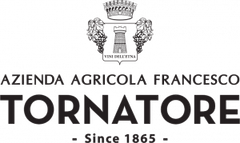
Out of a Sicilian family heritage that traces back to the 17th century, the Tornatore’s Mount Etna wine ventures began in 1865. Today the family’s operations are headed by Giuseppe Tornatore, a businessman whose expertise led to the acquisition of some of the region’s finest north-facing vineyards in the early 2000’s. That heritage and the Tornatore’s profound respect and understanding of the land is showcased in wines that capture the essence of Etna, deftly balancing concentrated flavors, complexity, freshness and refinement.
The company lies in the northern side of Mount Etna, the highest active volcano in Europe. The soils have volcanic origin and were created through the disintegration of lava, ash and stones from previous volcanic eruptions. The climate on the northern side of the Etna is characterized by mild temperatures, and more rain fall reflecting the influence of the Volcano. The combination of soil, climate and the skill of the winemakers, have made the northern slope of Etna an ideal area for the production of high-quality wines. “Our vineyards and our winery are only a few kilometers from our family home. Our entire family is rooted there. We have the greatest respect for this region, and we believe we have a responsibility to be stewards of Etna and to reflect its distinct character in our wines.” - Giuseppe Tornatore
- Red Wine
- Pinot Noir
- Organic
- Dry
- 750ml
About the Winery
Domaine de la Garenne
Rooted in the hills of Verdigny for generations, the Godon-Reverdy family has always worked this land — first in service to the Lords of Verdigny, then the cathedral of Bourges, and finally for themselves. The slopes, trees, and fields have shaped the winery's identity, walked by the parents, grandparents, and great-grandparents before them. It was after World War II that their great-grandfather, Amédée Reverdy, became a winemaker — not by plan, but by providence and a fateful draw of the short straw. Since then, each generation has built on that legacy.
Today, Domaine de la Garenne cultivates 12.5 hectares across 37 carefully managed plots in the Sancerre AOC, a renowned Centre-Loire appellation recognized since 1936 for whites and 1959 for reds and rosés. They grow Sauvignon Blanc and Pinot Noir, producing dry white, red, and rosé wines shaped by the region's oceanic climate and diverse soils. Their vineyards span three key soil types: Caillottes (chalky and vibrant), Clay-siliceous (flinty and mineral), and Terres Blanches (rich clay-limestone offering fruit and length). Embracing organic and biodynamic practices, they are committed to working in harmony with nature, letting each terroir express itself fully in the wines. In a region of 366 passionate winegrowers and 2,999 hectares under vine, the estate remains a proud family story — one of heritage, resilience, and a profound love of the land.
- White Wine
- Chardonnay
- Sustainable
- Dry
- Medium Bodied
- 750ml
- 12.5% alc./vol
About the Winery
Groupe Bellene
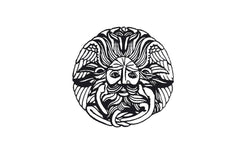
Led by Nicolas Potel in Beaune, Groupe Bellene is composed of the négociant arm Maison Roche de Bellene, the winery arm Domaine de Bellene, and a special back-vintage series under the Collection Bellenum label.
- Maison Roche de Bellene offers a complete range of wines, with an emphasis on individual terroirs from old vines of more than 40 years. All of the growers that Nicolas works with are either organic certified or sustainably farmed.
- Domaine de Bellene represents the wines that are produced and bottled from Nicolas Potel's private vineyard holdings.
- Collection Bellenum is a back vintage series that Nicolas Potel sourced from his friends in the region, offering a magnificent selection of bottled history. The wines have moved only twice in their lives, from the original cellar to Potel's and now to yours!
Nicolas Potel grew up at Volnay's Domaine Pousse d'Or, where his father worked. He trained abroad and returned home in 1996 to build a négociant business and started Maison Nicolas Potel, where he sourced grapes from good parcels, often working with the growers to improve the quality. By 2002, he was making 120 wines from 50 different appellations, and the rest is history!
- Red Wine
- Syrah
- Biodynamic, Natural, Organic, Vegan-Friendly
- Dry
- Medium Bodied
- 750ml
- 12.5% alc./vol
About the Winery
Domaine du Coulet - Matthieu Barret
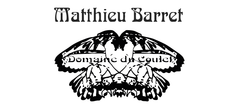
Matthieu Barret was born in Aix-en-Provence in 1975 and studied viticulture in Beaune.
He is the 7th generation vigneron and joined his grandfather in Cornas in 1997. Previously, his family had only been farming and selling grapes. He practices biodynamic viticulture, obtaining very low yields (23 hl/ha) and extraordinary quality. He describes his wines as being 100% grape, with a very low sulphite addition. His wines are extremely clean, and, true to the Cornas character. Domaine du Coulet was founded by Matthieu Barret’s grandfather after WWII, and over the years has supplied grapes to some of the best known producers in the Northern Rhône, including Chapoutier and Delas. While his father eschewed the agrarian lifestyle, opting instead for a career in international business, Matthieu knew early on that he wanted to be a vigneron. In 1998 at the age of only 23, he took over the family’s 25 acres of well-situated vines on the terraced hillsides of Cornas.
From the beginning, Matthieu has employed natural, organic practices and by 2002 (his second year of production) the domaine received its biodynamic certification. With each vintage, Matthieu has gained a better understanding of his vine parcels and through thoughtful experimentation, he now turns out a remarkable selection of Cornas wines that express the unique nuances of each micro-terroir. No new oak, no racking, minimal use of sulfur and no fining or filtration. Pure, sexy Syrah.
- Sparkling Wine
- Lambrusco di Sorbara, Pinot Nero
- Natural, Sustainable
- Light Bodied
- 750ml
- 11% alc./vol
- White Wine
- Riesling
- Biodynamic, Natural
- Dry
- 750ml
About the Winery
Weingut Bianka und Daniel Schmitt
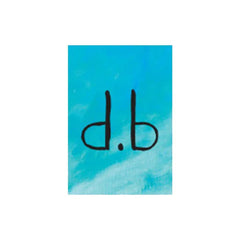
Bianka and Daniel took over the Weingut Schmitt in 2012 as the fourth generation to lead the winery. They are based in Wonnegau in the south Rheinhessen, centered in Flörsheim-Dalsheim. All of the vineyards are in Flörsheim-Dalsheim and neighbor villages Monsheim and Kriegsheim. Bianka and Daniel have been working their 16 hectares biodynamically for over a decade and are one of only 80 producers in Germany to be Demeter certified. They work with amphorae as well as used oak barrels and release a ‘Natur’ line that contains no added sulphur.
Here are Bianka and Daniel in their own words:
“Working biodynamically is a lifestyle that includes producing and spreading preparations in the vineyards as well as social interactions. The interactions between the life in the soil (like bacteria, mykorizen, plants as green cover and the vines) are composed with each other. Vines become stronger and get more vitality from a living soil, not from chemical treatments.
This active interaction in the soil life, the mutual strengthening of the plants result in stronger resilience for the vines which reflects the high quality of the grape, supports the presence of the individual soil types (calcareous soil covered by clay and partly loess, pebble). By working according to the biodynamic principles, biodiversity is supported as an automatic successor. As a result, the vineyards and the biotopes created by Bianka and Daniel offer a home for a diverse and local animal community.
After hand picking, the grapes are processed with or without skin maceration. And rest in wooden oaks (5000L, 3000L, 1200L, 600L) or clay amphorae (1200L, 300L) for at least 12 months on the whole yeast depot. The focus is on offering an optimal aging potential for the years to come. In order to support the collegial exchange and to enable operational training in the field of biodynamic agriculture, Bianka and Daniel and their winery are proud members of the Renaissance des Appellations, Demeter and Vinnatur associations.”
- Red Wine, White Wine
- Chardonnay, Pinot Noir
- Sustainable
- Dry
- Medium Bodied
- 750ml
About the Winery
Cordero San Giorgio
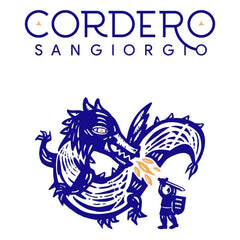
Cordero San Giorgio is a new beginning in Oltrépo-Pavese for three siblings who grew up surrounded by their family’s vines at the legendary Vietti Estate in Castiglione Falletto in Barolo. The siblings Francesco, Lorenzo, and Caterina Cordero, are grandchildren of Luciana Vietti & Alfredo Currado, one of the pioneers of the first Barolo crus and considered the “father of Arneis.” Their father is Mario Cordero, Alfredo and Luciana’s son-in-law, who was the company’s co-owner from the beginning of the ‘80s until 2016 when it was sold.
Cordero San Giorgio is located in Santa Giuletta, a village sitting on the first hilly belt of the territory, an area made up of valleys that fan out over the Po Valley with steep slopes and thick ridges. The composition of the soil makes their site particularly suitable for the production of Pinot Nero, making it possible to obtain wines with maximum varietal expression and a strong territorial identity.
The Oltrepò Pavese is a hilly triangle of land in Lombardy, embraced by Piedmont, Liguria, and Emilia-Romagna. A territory dedicated to the cultivation of vines and the culture of wine for centuries: a land of both cultural and gastronomic encounter and exchange. Cordero San Giorgio is in the town of Santa Giuletta, and focuses on working with Pinot Nero, Pinot Grigio and Chardonnay.


























